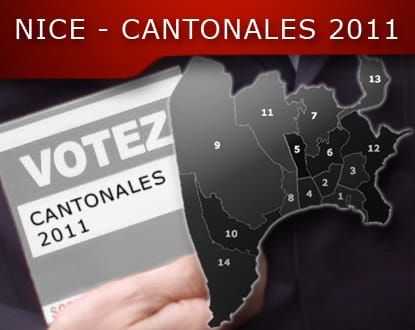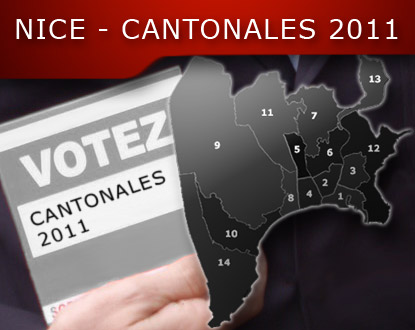This consultation, which involved 26 districts of the department, had more political than electoral significance, as the outgoing right-wing majority was assured of maintaining a comfortable lead over its opposition, and Eric Ciotti was certain to be re-elected as President.
 The results of the first round somewhat changed the situation with the rise, though expected, but not of such magnitude, of the FN (National Front), which held on in 14 districts, despite the new law voted by the parliamentary majority aimed at preventing three-way races which, in the past, had often benefited left-wing candidates.
The results of the first round somewhat changed the situation with the rise, though expected, but not of such magnitude, of the FN (National Front), which held on in 14 districts, despite the new law voted by the parliamentary majority aimed at preventing three-way races which, in the past, had often benefited left-wing candidates.
Most likely this result, barring any further surprises, will not convert into a number of seats, but the political landscape of the region will be significantly marked ahead of the 2012 presidential election.
Returning to the 2011 district elections, after the first 6 districts already assigned (5 right-wing and 1 left-wing elected), on Sunday, the direct face-offs will determine the winners, except for possible challenges like in the 14th district.
Concerning the 8 districts in Nice, the question is whether the three UMP candidates who were overtaken in the first round (Daniel Benjmol, Bernard Asso, and Bernard Baudin) will be able to overturn the situation against practically unknown opponents who, in any case, will emerge politically weakened. The positions of Olivier Bettati and Benoit Kandel are more comfortable. Similarly, the Nice left can be optimistic for two of its three finalists, Patrick Mottard and Jacques Victor. Finally, the most difficult and uncertain confrontation will be between Dominique Estrosi Sassone and Paul Cuturello, with a slight advantage for the UMP candidate who emerged as the frontrunner in the first round.
An analysis is already possible: this election showed a certain fragility of the departmental majority in a territory that is nonetheless well-rooted sociologically to the right and locked down from a politico-administrative standpoint. If the surge of the extreme right is motivated by a cocktail of rejection of the establishment (God knows if clientelism rhymes with public administration in all sectors), nationalism, intolerance, and paranoia, the Republican right failed to rise to this challenge, albeit local.
Instead of practicing a true policy of substance and engaging in education, the local power holders were content with confused responses and short-term actions.
We saw announcements galore, inaugurations en masse, and promises of all kinds. The district of Moulins received such attention that one could imagine that if there had been a few more weeks of the electoral campaign, this district could have looked like…Beverly Hills! But despite all this evident determination, there was a tangible lack of sensitivity to the deeper meaning of things.
The demonstration by absurdity is that by multiplying statements and initiatives intended to compete with the FN, even going so far as to borrow its vocabulary, the Republican right has everything to lose, as shown and demonstrated by these local and national electoral results.
So why be surprised if voters marked by “social fear” chose the protest vote and the Marine blue wave?


